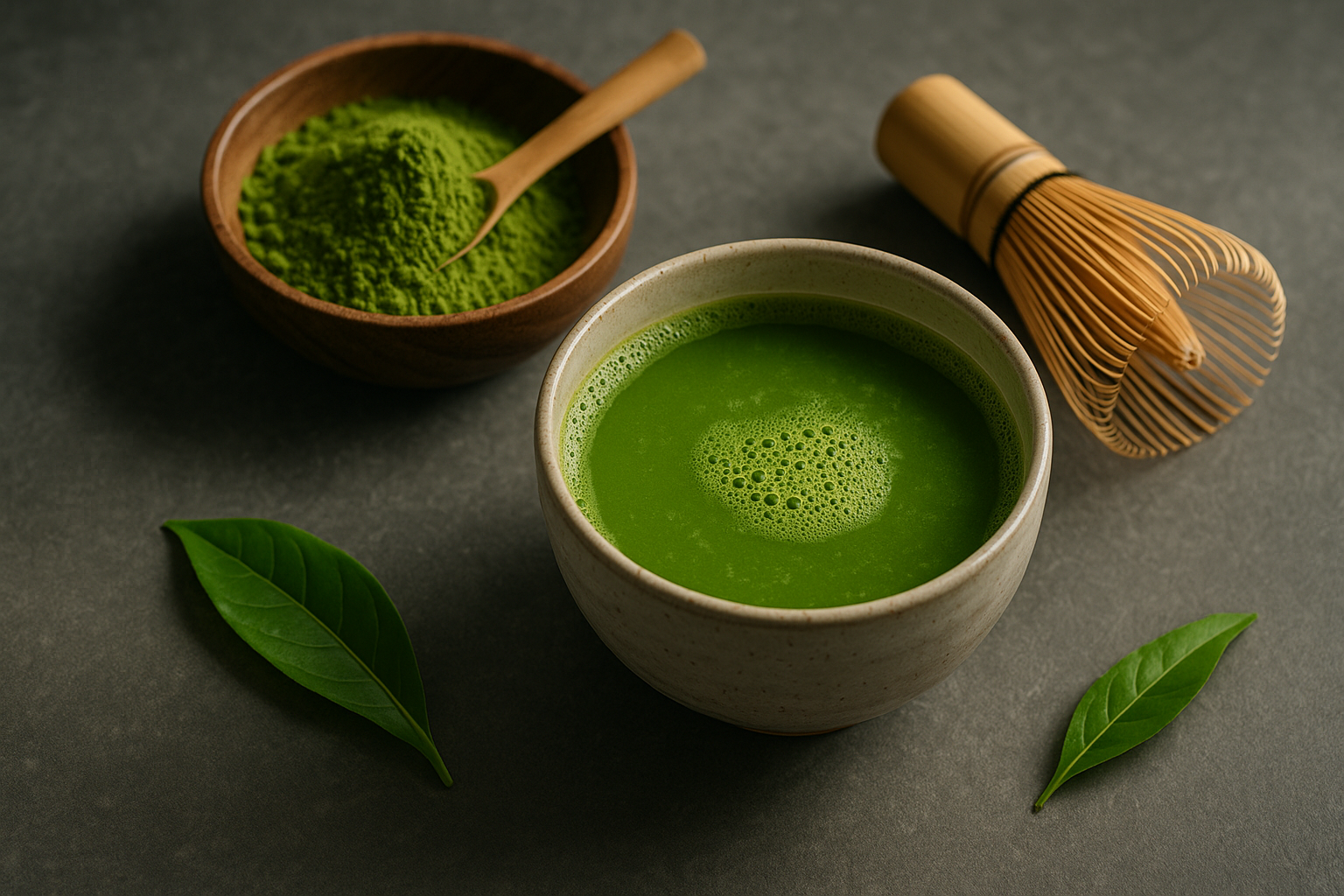Unraveling the Health-Supportive Properties of Matcha: A Modern Perspective
Has the unique, vibrant green hue of matcha caught your eye at your local coffee shop? This traditional Japanese beverage, once reserved for tea ceremonies, has become a popular choice among health enthusiasts worldwide. But is it just a trendy drink, or does it offer significant health benefits? Let's delve into the fascinating world of matcha and its potential wellness impact.

The History and Science of Matcha
Matcha, which means “powdered tea,” dates back to the Tang Dynasty in China. It eventually made its way to Japan, where it became a staple in Zen Buddhist rituals. Unlike other types of green tea, matcha involves the consumption of the entire tea leaf, pulverized into a fine powder. This method of consumption offers a potent dose of the leaf’s beneficial compounds.
Scientific studies have linked matcha consumption to several health benefits. The primary contributors to these benefits are the compounds called catechins, a type of antioxidant. Research shows that these antioxidants can help protect the body from cell damage and potentially lower the risk of chronic diseases.
The Health Impact of Matcha: What Does the Science Say?
Matcha offers a unique blend of health-boosting compounds. Its high concentration of catechins, particularly epigallocatechin gallate (EGCG), sets it apart from other green teas. EGCG is renowned for its anti-cancer properties and its potential to aid in weight loss by boosting metabolism.
Another key component of matcha is L-theanine, an amino acid that promotes relaxation without drowsiness, contributing to the calm alertness often associated with matcha consumption. It also helps to moderate the impact of caffeine, providing a balanced energy boost without the jitters typically associated with coffee.
Matcha’s Role in Modern Health Trends
Matcha has swiftly integrated into modern health trends. Its vibrant color, earthy flavor, and potential health benefits make it a popular choice in smoothies, lattes, and even desserts. However, it’s essential to remember that the addition of sweeteners and other ingredients may offset some of matcha’s health benefits. A straightforward way to enjoy matcha is by whisking the powder into hot water, just as it’s been done for centuries.
The Matcha Advantage: Quick Facts
- Matcha contains a unique blend of health-boosting compounds, including antioxidants and amino acids.
- The catechin EGCG present in matcha has been linked to potential weight loss and cancer prevention.
- L-theanine in matcha can promote a state of calm alertness, making it a beneficial drink for stress management.
- Matcha provides a balanced energy boost, thanks to the moderating effect of L-theanine on caffeine.
Conclusion
While it’s easy to dismiss matcha as just another health fad, the depth of its historical use and the breadth of its potential health benefits make it a worthy addition to a wellness-focused lifestyle. From its antioxidant properties to its calming effects, matcha offers a unique combination of health-supportive properties. As with all dietary changes, it’s essential to consult healthcare professionals before integrating matcha into your wellness routine. It’s a testament to the fact that sometimes, the most powerful health-supportive gems can be found in the simplest of traditions.




